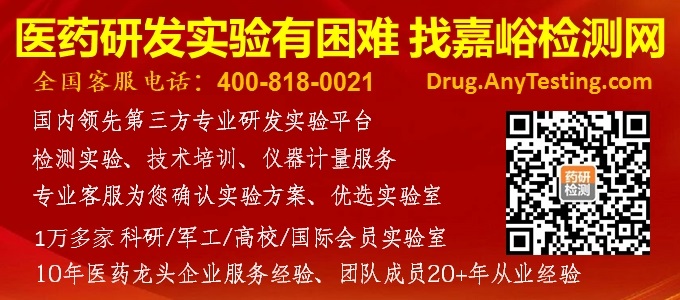Fluoropolymers have an extreme high chemical stability. However, this stability also means that - once released into the environment - they can remain there for a very long time and cause environmental damage. The EU is planning to restrict or ban perfluorinated and polyfluorinated alkyl substances (PFAS), which include PTFE, for example, in the future. This would have serious consequences for plants in the pharmaceutical industry, for example, where PTFE is used as a material for seals.
含氟聚合物具有极高的化学稳定性。然而,这种稳定性也意味着 - 一旦释放到环境中- 它们可以在那里停留很长时间并造成环境破坏。欧盟正计划在未来限制或禁止全氟和多氟烷基物质(PFAS),其中包括PTFE(聚四氟乙烯)。这将对制药行业的工厂产生严重后果,例如,PTFE被用作密封件的材料、某些疏水性过滤器、模具、护栏等。
Although it has been under discussion for some time, not everyone is aware that the production and thus the availability of PTFE (known to many under the brand name "Teflon"), among other things, is currently being put to the test.
尽管已经讨论了一段时间,但并不是每个人都知道PTFE(许多人以“特氟龙”品牌名称而闻名)的生产以及可用性目前正在接受检测。
Restrictions and bans on fluorinated hydrocarbons have been in place for some time. In 2006, the EU Directive 2006/122/EC restricted the use of perfluorooctane sulfonic acid (PFOS). This was later followed by the restriction of perfluorooctanoic acid (PFOA) by EU Regulation 2020/784.
对氟化碳氢化合物的限制和禁令已经存在了一段时间。2006年,欧盟指令2006/122/EC限制全氟辛烷磺酸(PFOS)的使用。随后,欧盟法规 2020/784 对全氟辛酸 (PFOA) 进行了限制。
European Chemical Agency plans ban or restriction of PFAS substances
欧洲化学品管理局计划禁止或限制PFAS物质
However, the current discussion goes considerably further: the European Chemical Agency (ECHA) plans to ban perfluorinated and polyfluorinated alkyl substances (PFAS).
然而,目前的讨论更进一步:欧洲化学品管理局(ECHA)计划在未来禁止全氟和多氟烷基物质(PFAS,包括PTFE)。
"phasing out the use of per- and polyfluoroalkyl substances (PFAS) in the EU, unless their use is essential"
“欧盟将逐步停止使用全氟烷基物质和多氟烷基物质 (PFAS,包括PTFE),除非必须使用它们”
PFAS cause contamination in soils and drinking water, among other things, and there is justified concern that these issues are increasing due to the persistence of these substances. Some PFASs are classified as persistent, bioaccumulative and/or toxic. Even in waste incineration, some of these substances cannot be degraded as they are destroyed only at temperatures above 1,000°C.The use of these substances should therefore be phased out unless it can be proven that they are indispensable for the public good ("unless their use is essential").
PFAS会导致土壤和饮用水等污染,并且有理由担心由于这些物质的持久性,这些问题正在增加。一些PFAS被归类为持久性,生物蓄积性和/或毒性。即使在垃圾焚烧中,其中一些物质也无法降解,因为它们只有在1000°C以上的温度下才会被销毁。 因此,应逐步淘汰这些物质的使用,除非能够证明它们对公共利益是不可或缺的(“除非它们的使用是必要的”)。
The planned bans would predictably lead to cuts in production, supply chains and availability problems. PFAS are also used in large quantities in water-repellent clothing materials or fire-fighting foams. Substitute materials are already being intensively sought for these applications, as the environmental impact is particularly high there.
可以预见,该禁令计划将导致生产、供应链和可用性问题。PFAS还大量用于防水服装材料或消防泡沫中。人们已经在为这些应用密集寻找替代材料,因为对环境的影响特别大。
Switching to alternative materials is usually complicated in the GMP environment. The required EU/FDA material certifications and, in some cases, the approvals of medical devices and/or medicinal products themselves, if PTFE is mentioned there in any form, stand in the way.
在GMP环境中,切换到替代材料通常非常复杂。所需的欧盟/FDA材质认证,以及在某些情况下,医疗器械和/或医药产品本身的批准,如果以任何形式提及PTFE,都会成为障碍。
In principle, one wants to allow exceptions to the ban for essential applications. It is quite certain that these approvals would be granted for the hundreds of applications in the field of medical technology, pharmaceuticals and biotechnology. However, the manufacturers and/or users would have to apply for and justify such exceptions in each individual case - including evidence that chemically unproblematic alternatives have been sought.
原则上,人们希望允许对必要的应用进行例外。可以肯定的是,这种批准将授予医疗技术,制药和生物技术领域的数百项申请。然而,制造商和/或用户必须在每个个案中申请并证明这种例外情况的合理性,包括证明已经寻求化学上没有问题的替代品的证据。
The BDI writes in its assessment of the planned restriction procedure: (only available in German language).
BDI在其对计划的限制程序的评估中写道:
A lack of viable alternatives to PFAS substances means high costs when trying to replace them.
缺乏PFAS物质的可行替代品意味着在尝试替代它们时成本很高。
Due to the often highly complex international supply chains ...there is a high risk of unforeseen disruptions of the supply chains with all the associated economic impacts.
由于通常高度复杂的国际供应链...供应链发生不可预见的中断以及所有相关经济影响的风险很高。
A precise impact analysis per substance therefore requires sufficient time, which unfortunately is not currently granted.
因此,对每种物质进行精确的影响分析需要足够的时间,遗憾的是,目前尚未给予时间。
Users of PTFE and similar fluoropolymers - especially from the pharmaceutical or medical technology sectors - should address this issue and consider becoming actively involved in the ongoing discussion on the regulation of PFAS.
PTFE和类似含氟聚合物的用户 - 特别是来自制药或医疗技术领域的用户 - 应该解决这个问题,并考虑积极参与正在进行的关于PFAS监管的讨论。
The European Chemicals Agency (ECHA) had started a consultation on possible restrictions or the ban of PFAS under REACH. Here, affected groups or associations can gatherarguments for an exemption regulation.
欧洲化学品管理局(ECHA)已开始就REACH下PFAS的可能限制或禁令进行磋商。在这里,受影响的团体或协会可以为豁免法规收集论据。




